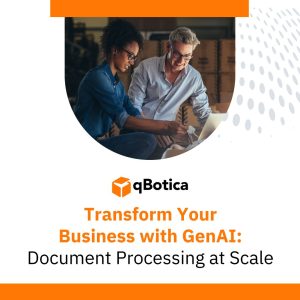Artificial Intelligence is making its way into each and every industry, and the healthcare industry is no different. Time is of the essence, especially in the healthcare industry. Healthcare professionals need to be on their toes and ready for anything, but that requires healthcare officials to be on top of their game too.
Healthcare administrative tasks require a lot of time and effort, and more often than not, this can result in very hectic schedules. Especially nowadays, the healthcare industry has a lot of other things to focus on, and spending time on such tasks takes away precious time.
This is where automation benefits everyone. Artificial Intelligence helps streamline administrative tasks by shifting the work of officials completely online, whereby the work is done by the software.
Continue reading to learn more about the different automation software and their uses in making the healthcare industry more efficient.
What is RPA and Intelligent Automation?
Robotic Process Automation (RPA) is an AI software program that is used to streamline repetitive and monotonous tasks, easing the workload on back-office employees. The software is designed to imitate white-collar employees and does their tasks both completely on its own or with the help of an actual employee. As long as the task has a basic and direct order, it can be automated with the help of RPA.
Types of RPA
#1 Attended RPA
Attended RPA refers to employees using bots and working with automation to make their tasks more efficient and systematic. These bots cooperate with workers in the form of digital employees. With the use of signals and prompts provided by the employee, the RPA can work on its own to complete a given task.
#2 Unattended RPA
An Unattended RPA is the opposite of an Attended RPA. Unattended RPA makes use of bots that can work independently of an employee. Unlike Attended RPA, which works when given signals, Unattended RPA works on its own and does not depend on an employee’s signal.
#3 Hybrid RPA
Just like the name suggests, Hybrid RPA makes use of both Attended and Unattended RPA, combining them and thus completing tasks even more efficiently. The Attended RPA part of this bot works with the help of prompts, while the Unattended RPA part completes the process on its own. As a result, Hybrid RPA can complete almost all of its given tasks without the need for an employee to check in.
Intelligent automation, also known as cognitive automation, involves the usage of artificial Intelligence with computer-based software such as RPA to make processes that can develop on their own. With the help of Intelligent Automation, healthcare officials can shift repetitive work online and combine it with complex processes to bring about more efficient and better solutions and decisions.
How do RPA and Intelligent Automation work in the Healthcare Industry?
#1 Scheduling Appointments
Depending on how many times you have visited the doctor, you may have noticed that the process of scheduling an appointment has become a lot faster and easier, all thanks to automation. Dealing with phone calls and manually filling out details is a lengthy process that has now been taken up by Intelligent Automation.
With the use of RPA and Intelligent Automation, healthcare workers are able to focus more on different tasks because they no longer have to cater to patients manually. Nowadays, patients can schedule appointments on their own with their preferred doctor without having to deal with long waiting times.
#2 Improved Claims Management
Dealing with claims is perhaps one of the more time-consuming administrative tasks that have now been taken up by RPA. With so many patients to tend to, claims management was slowly becoming a nuisance before automation.
Nowadays, with the help of Intelligent Automation and RPA, claims can be completed and processed automatically by AI. This AI software works nearly eight times faster than human employees and greatly reduces the chance of error. RPA bots can now overlook claims on their own and update employees whenever necessary making healthcare administration a lot more efficient.
#3 Better Customer Satisfaction
Customer service is one of the most repetitive jobs, which makes it perfect for AI software, specifically RPA. RPA works best with repetitive tasks, either with or without the help of an employee. Along with RPA, Intelligent Automation can respond to patients with basic answers that are likely to satisfy their needs.
RPA and Intelligent Automation are also used to distribute reports and other data when they become available. This helps lead to greater patient satisfaction because healthcare workers no longer have to deal with the strenuous process of delivering reports to patients themselves. Think about it, isn’t it so much better that you can get reports online a lot faster than before?
#4 Simplified Registrations
Keeping a record of everything is by far one of the most important tasks in the healthcare industry. Whether it is registering patients or updating patient profiles with their reports, everything needs to be perfect. However, human error can cause many problems; hence this administrative task requires a lot of time and focus.
Nowadays, this entire process can be left to digital employees. Since healthcare workers no longer have to spend large amounts of time dealing with patient details, they can spend more time tending to the patient and making sure everything is okay.
#5. Efficient Data Entry
When it comes to the healthcare industry, an enormous amount of data needs to be handled very carefully. Each patient visit leads to either updating previous data or creating a completely new profile. RPA and Intelligent Automation make this process a lot easier by gathering previous patient data and automatically filling up fields.
Shifting to online data entry not only makes the process of data collection easier but also simplifies finding data regarding a patient. Previously, data was kept in physical forms, which would be stored away and hard to find. Nowadays, they can be found and opened up easily online.
Conclusion
Sooner or later, Artificial Intelligence will find its way into every aspect of the healthcare industry, and why shouldn’t it? The use of RPA and Intelligent Automation simplifies the job of healthcare workers and gives them more time to spend tending to patients and other important tasks.
Without a doubt, workers’ cooperation with technology will make great strides in reaching better healthcare services, and the use of RPA and Intelligent Automation is just the start of this.




